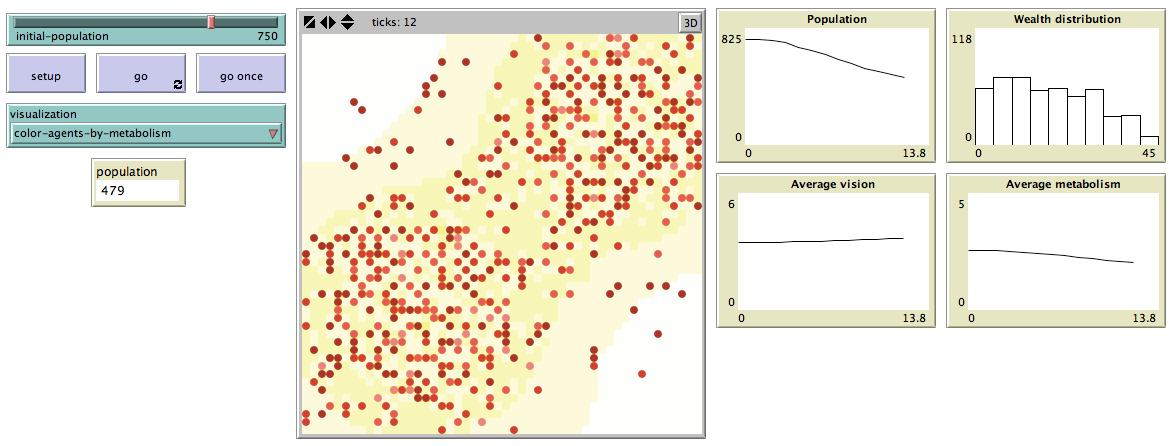
Meets: MWThF 9am in Webster 102
Office hours: Tues & Thurs 1-3pm and Mon, Wed, Fri 10-10:50am
Other times by appointment or simply try stopping by my office.
Texts: (all available at Amherst Books and on reserve in the Science Library)
Agent-Based and Individual-Based Modeling by Railsback and Grimm
The Signal and the Noise by Nate Silver
Growing Artificial Societies by Joshua Epstein
Materials: NetLogo modeling software (free download, works on all computers)
Assignments will be posted on the course Moodle site.
There are no requisites for this course--everyone is welcome!
Mathematical modeling plays an important role in our society. In this course, we will explore a variety of models using an agent-based approach. The course will revolve around individual and group modeling projects, using NetLogo, software that is easy to learn to use and is a great modeling tool. We'll start with some simple examples to discover the amazingly complex dynamics that can arise from a few simple rules. Through a model of fish schooling, we will also discover how order can emerge from individuals behaving according to basic rules, with no leader or other form of group control. We will also build "artificial societies" to explore properties of societies.

In general, we will learn basic principles of how to develop and analyze models, and have a lot of fun exploring the models along the way. Class meetings will involves lots of creative activity: brainstorming ideas for important features of models, development and exploration of new models, and discussion of what the models can tell us. Lectures will be minimal. There will be no exams; the grade will be based on project reports and presentations.
Attendance: You are to be in class and to be there on time. Cooperative learning is more effective and more fun than struggling through material on your own. We will spend a lot of class time actively discussing or working on modeling problems, so it's important that everyone be in class and participating.
Intellectual Responsibility: